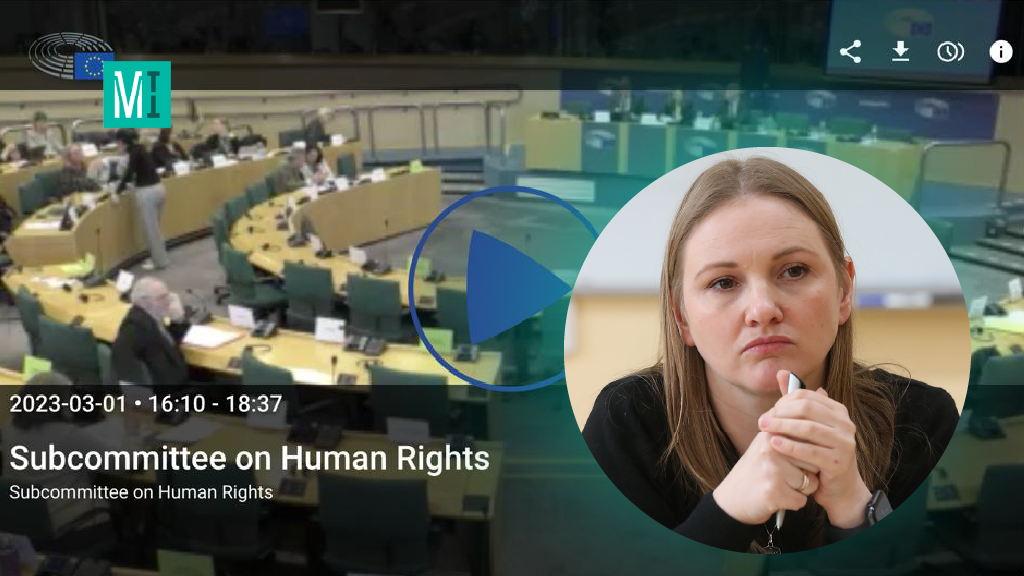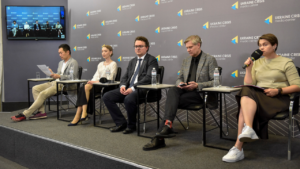MIHR at the European Parliament: an international working group is needed to help liberate civilians from Russian captivity

On March 1st, MIHR representatives participated in the event organized by the European Parliament Subcommittee on Human Rights. MIHR coordinator Olha Reshetylova and Khrystyna Leibak, the wife of a civilian kidnapped by the Russians, were speaking about Ukrainian civilians illegally detained and tortured in prisons in Russia and in the occupied territory of Donetsk and Luhansk Oblasts.
Olga Reshetylova reminded the international community that illegal detentions in the occupied territories of Ukraine have been ongoing since 2014. Even before the full-scale Russian invasion, the Media Initiative for Human Rights had a list of more than 200 civilians held in the occupied part of Donbas, as well as more than 150 names of Crimean Tatars and Ukrainians whom Russia had turned into political prisoners and held in occupied Crimea and its territory.
After February 24, the number of civilian hostages increased manifold. Reshetylova noted that MIHR knows more than 900 people, but the exact number is much higher. “Russia keeps Ukrainians secretly in its prisons. We found out about at least five such institutions, particularly pre-trial detention center No. 2 in the Bryansk region and the prison in Kursk. We receive information about civilian hostages from Ukrainian servicemen released from captivity, who were held by the Russians together with civilians,” said Olga Reshetylova.
At the end of her speech, Olha Reshetylova once again emphasized the need to separate humanitarian issues from political ones because mechanisms like the Minsk agreements do not work in the case of civilian hostages. According to Reshetylova, it is necessary to create a special working group to deal with negotiations with Russia on releasing Ukrainian civilians from Russian captivity.

Khrystyna Leibak
Khrystyna Leibak told the audience in the European Parliament how the Russians occupied the village of Pokrovske on the Kinburn spit in Mykolaiv Oblast, where she lived with her family, and turned it into ruins. Khrystyna remembered how the Russian military intimidated residents, arranged inspections and searches, and robbed the locals.
Serhiy Leibak was a civilian at the time of Russia’s full-scale invasion. But in the past, he served in the Anti-Terrorist Operation zone. Russians searched for and detained such veterans in the first instance. Serhiy was detained on March 19, 2022.
“Hundreds of Ukrainian civilians are scattered in the prisons in the occupied territories and Russia. These are people devoted to their country and work,” said Khrystyna Leibak.
The Media Initiative for Human Rights continues to work on releasing Ukrainian civilians from Russian captivity. You can also help in this by telling the international audience that Ukraine urgently needs to create an international working group on the issue of liberating civilian hostages.







